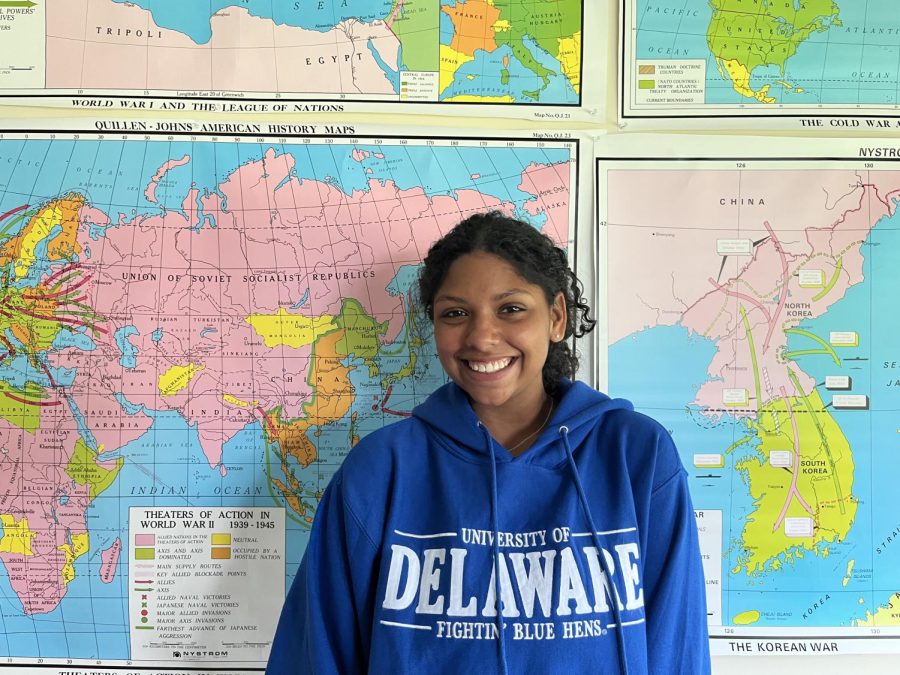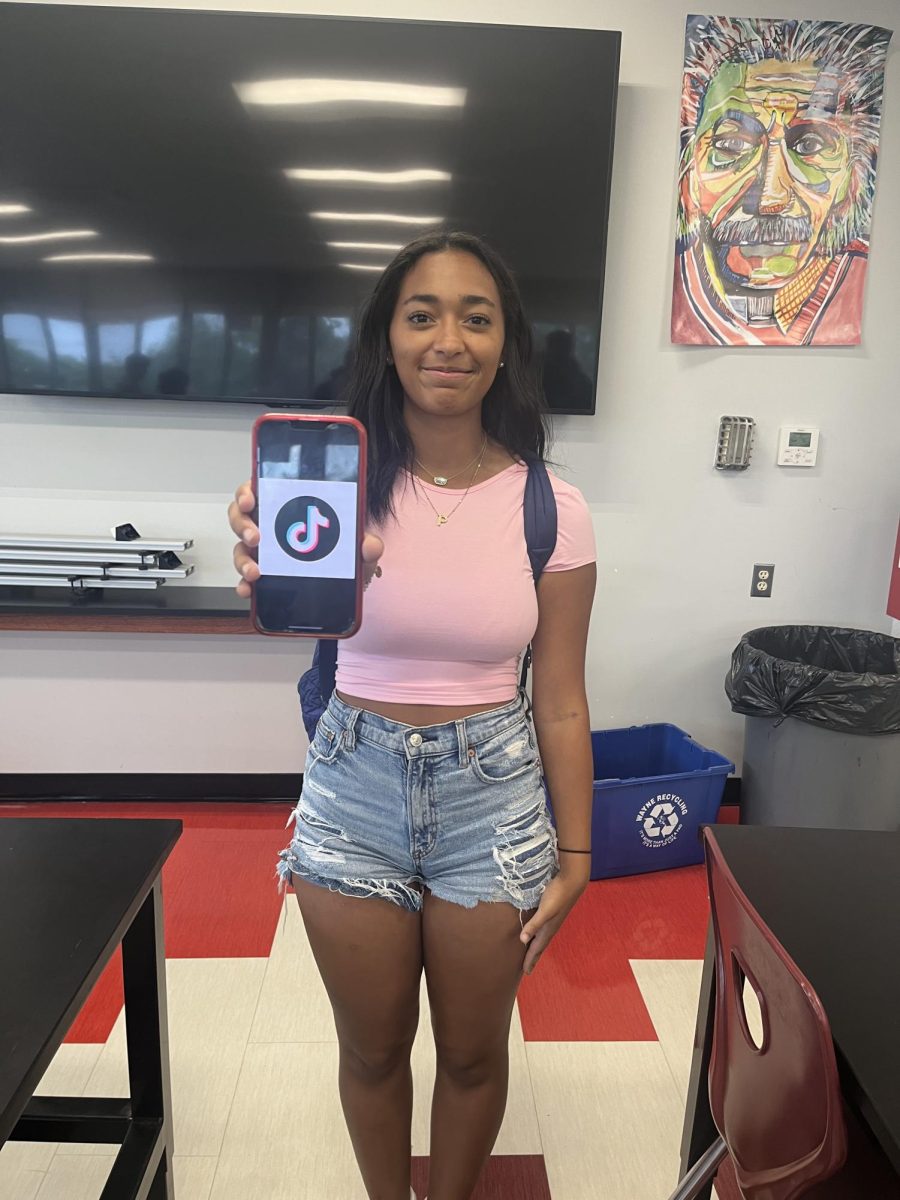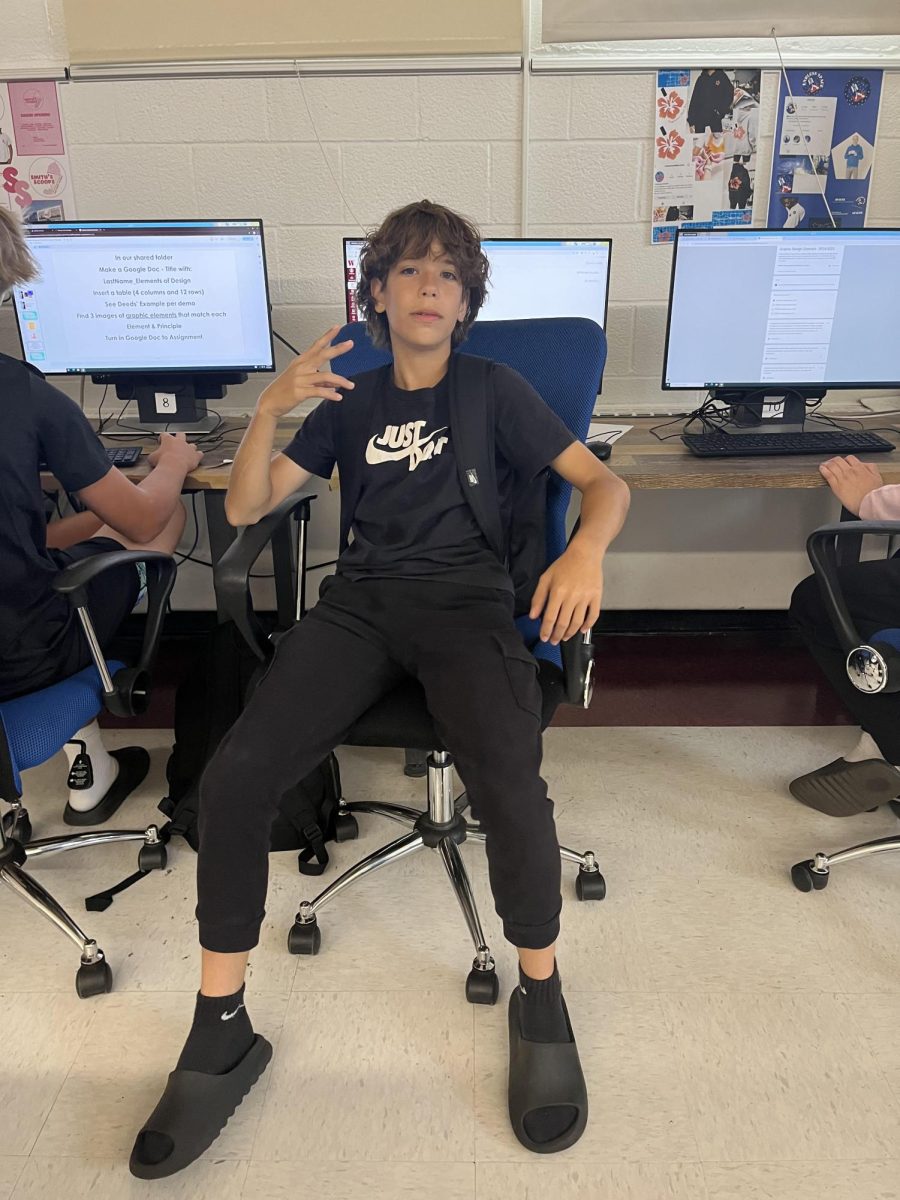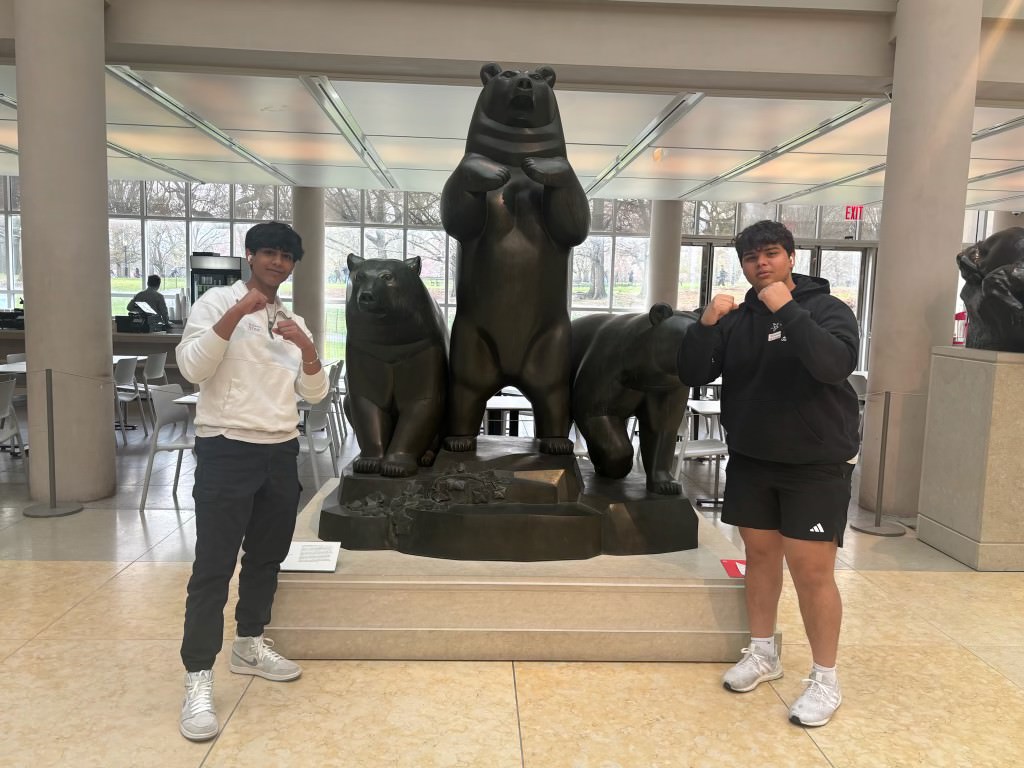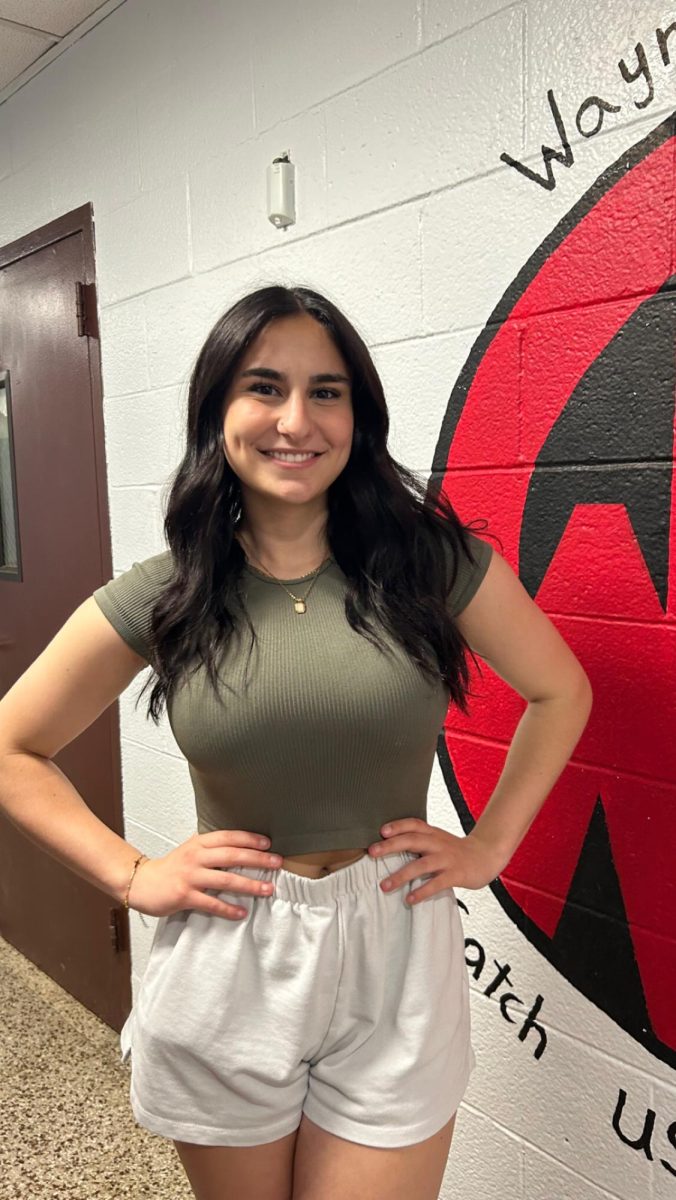Ketanji Brown Jackson, the First African-American Woman, Confirmed to the Supreme Court
Wayne Hills Senior Kaylyn Alejo shares her excitement over Justice Ketanji’s Nomination to the Supreme Court
April 24, 2022
In a historic moment on Thursday, April 7, 2022, Ketanji Brown Jackson was confirmed to the Supreme Court of the United States making her the first African-American female to sit on the bench.
After Justice Stephen Breyer announced his retirement after serving since 1994, Democratic President Joe Biden was quick to fill his seat to secure a liberal spot on the Court.
President Biden was steadfast in selecting an African-American woman to fill Justice Breyer’s seat fulfilling his campaign promise. At an event at the White House on January 27, Justice Breyer announced his retirement after three decades on the Supreme Court. At this same event, President Biden announced that he will nominate the first African-American woman to the Court: “The person I will nominate will be someone with extraordinary qualifications, character, experience and integrity. And that person will be the first Black woman ever nominated to the United States Supreme Court,” Biden said. “It’s long overdue in my view. I made that commitment during the campaign for president, and I will keep that commitment.”
Shortly, on February 25, President Biden nominated Judge Ketanji Brown Jackson as his selection to fill Justice Breyer’s vacancy. Judge Jackson was serving on the U.S. Court of Appeals for the D.C. Circuit at the time.
Justice Jackson was born in Washington D.C. and was raised in Miami, Florida. She attended Harvard University graduating magna cum laude in 1992. She then graduated cum laude from Harvard Law School in 1996.
After graduating from Harvard Law, Judge Jackson was a clerk for Justice Breyer. She also served as a public defender from 2005 to 2007, which made her the first Supreme Court Justice to have been a former public defender.
Before becoming a judge, Justice Jackson served as Vice-Chair of the U.S. Sentencing Commission, a panel advising the federal government on criminal sentencing. Nominated by President Barack Obama in 2009, she was confirmed with bipartisan support in 2010. She then served as a judge on the U.S. District Court for the District of Columbia. She was confirmed with bipartisan support in 2013.
In 2021, President Joe Biden nominated Justice Jackson to the U.S. Court of Appeals for the D.C. Circuit, once again receiving bipartisan support for her confirmation. Now, Justice Jackson sits on the highest court of the United States after many years of experience in the judiciary proving her competency as a Supreme Court justice, which many questioned.
During the Senate confirmation hearings, Republican and Democratic Senators clashed over current hot topics such as critical race theory and gender identity.
Senator Ted Cruz (TX) claimed that if nominated, Justice Jackson “will prove to be the most extreme and the furthest-left justice ever to serve on the Supreme Court.” Other Republican senators led by Missourian Senator Josh Hawley repeatedly accused Justice Jackson of being too soft on crimes involving child sex abuse images.
Ultimately, the Senate Judiciary Committee hearings reflect on the highly polarized political climate in the United States. Although Justice Jackson is extremely qualified to become a historic Supreme Court justice, Republicans refuse to support a historic moment by citing irrelevant political issues. The Supreme Court is designed to be apolitical upholding the Constitution, even though it may be anything but apolitical right now.
Senator Lindsey Graham (SC) was only one of the three Republicans who voted for Judge Jackson’s nomination to the U.S. Court of Appeals for the D.C. Circuit last year. Yet, the Republican Senator would not give her support for Jackson’s Supreme Court confirmation.
The vote finally came to 53-47 with Republican Senators Susan Collins of Maine, Mitt Romney of Utah, and Lisa Murkowski of Alaska joining Democrats to confirm Justice Jackson.
Democratic leaders celebrated this momentous moment in history. Senate Majority Leader Chuck Schumer said, “In the 233-year history of the Supreme Court, never, never has a Black woman held the title of Justice. Ketanji Brown Jackson will be the first and I believe the first of more to come.”

One key moment during the Senate Confirmation hearings that touched hearts across the nation was Justice Jackson’s message to her daughters: Talia and Leila. “I’m saving a special moment in this introduction for my daughters, Talia and Leila. Girls, I know it has not been easy as I’ve tried to navigate the challenges of juggling my career and motherhood. And I fully admit that I did not always get the balance right. But I hope that you’ve seen that with hard work, determination, and love, it can be done. I am so looking forward to seeing what each of you chooses to do with your amazing lives in this incredible country. I love you so much,” said Justice Jackson in her heartfelt message.
Kaylyn Alejo, a senior at Wayne Hills High School, shared her excitement about Justice Jackson’s confirmation. “I think her nomination to the supreme court is great! She is qualified and therefore deserves that position. This can inspire young African-American women and girls nationally by demonstrating that they are able to accomplish anything they dedicate their hard work and mind to,” Alejo said. “I hope that now we will use Ketanji Brown Jackson as an example for ourselves that the color of our skin will no longer defer us from success in life.”
This moment in history will be remembered forever. The bench has seen a slew of Justices from various backgrounds, but never an African-American woman. Justice Jackson has now changed that forever. As Kaylyn said, her presence on the highest court of the land serves as an inspiration to young African-American girls around the world that anything is possible.



